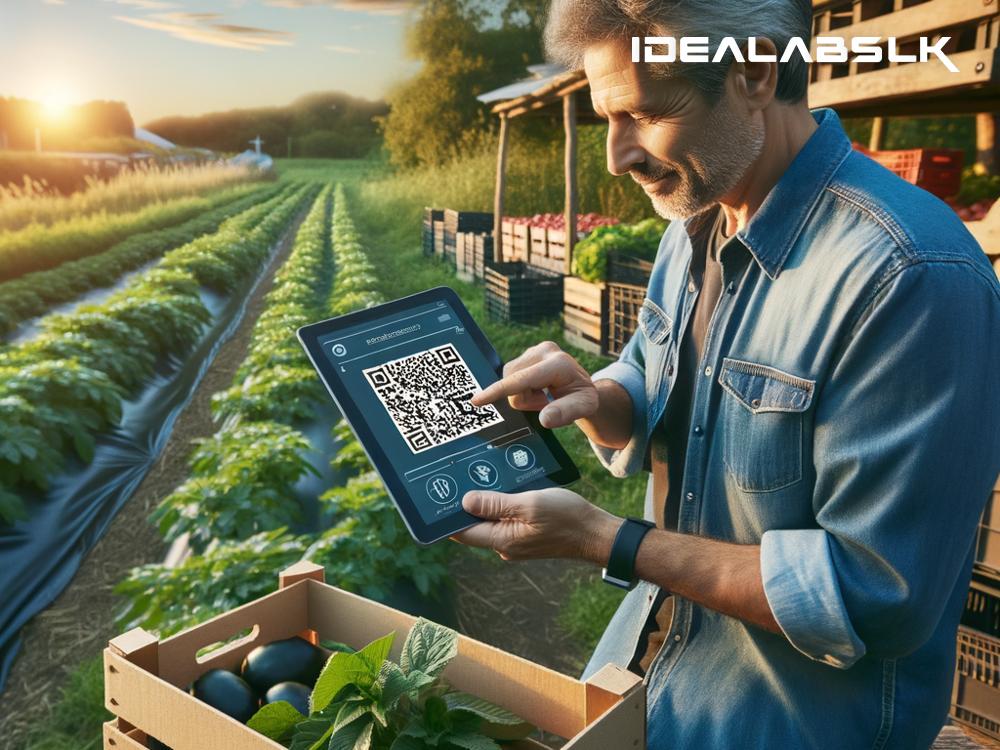Blockchain for Digital Identity of Farmers and Food Producers: Unveiling the Power of Technology in Agriculture
In today's digital age, technology is revolutionizing how we live, work, and even eat. One of the most groundbreaking developments in recent years is blockchain technology. While most people associate blockchain with cryptocurrencies like Bitcoin, its potential stretches far beyond, particularly into the agricultural sector. Imagine a world where every farmer and food producer has a digital identity, making the journey of food from farm to fork not just traceable, but transparent and trustworthy. This is not a distant dream but a fast-approaching reality, thanks to the power of blockchain.
What is Blockchain?
At its core, blockchain is a digital ledger - think of it as a high-tech record-keeping system. What sets it apart is its decentralization; instead of records being stored in one location, they are distributed across a network of computers. This makes it incredibly secure and nearly impossible to hack or tamper with. Each record or 'block' is linked to the one before and after it, creating a chain of information that is permanent and unchangeable.
Digital Identity for Farmers and Food Producers
Now, let's focus on how blockchain can revolutionize the identity of farmers and food producers. A digital identity, in this context, is a secure and immutable record of a farmer or food producer's credentials, product details, and transaction history. It's like a virtual passport or CV that provides trustworthy information to consumers, retailers, and authorities.
Why is this Important?
The agriculture industry faces numerous challenges, from food fraud to supply chain inefficiencies, environmental concerns, and the need for sustainability. Farmers and food producers often bear the brunt of these issues, finding it challenging to prove the authenticity and quality of their products. Meanwhile, consumers increasingly demand transparency regarding the origin and journey of their food.
The Power of Blockchain in Agriculture
1. Enhanced Traceability
Blockchain can track the journey of food products from the farm to the consumer's plate in real time. Each step of this journey is recorded on the blockchain, creating a tamper-proof and accessible history. For farmers and food producers, this means they can easily prove the provenance and quality of their products. For consumers, it provides peace of mind knowing exactly where their food comes from.
2. Greater Transparency
By giving each product a digital identity on the blockchain, every transaction and movement can be transparently viewed by authorized parties. This level of transparency helps in building trust among consumers and also enables regulators to efficiently monitor compliance with food safety standards.
3. Improved Efficiency and Lower Costs
Blockchain can streamline agricultural supply chains by reducing paperwork, accelerating transactions, and lowering the risk of fraud. This efficiency can lead to cost savings for both producers and consumers. Additionally, it can help small-scale farmers gain direct access to markets, thereby increasing their income potential.
4. Empowering Small-scale Farmers
Many small-scale farmers face challenges in proving their product's quality and gaining fair market access. Blockchain's digital identity capacities can level the playing field. With a verifiable record of their produce, small producers can better negotiate prices, access financial services, and reach a wider market.
The Future is Here
Several initiatives globally are already harnessing blockchain for the benefit of the agricultural sector. Projects are underway that enable consumers to scan a QR code on a product to view its entire history, from seed to store. Governments are exploring blockchain for better policy-making and support schemes for farmers.
Challenges and Considerations
While the potential of blockchain in agriculture is enormous, there are hurdles to overcome. These include technological literacy, access to the necessary technology, and the standardization of data. However, with ongoing technological advancements and increasing collaboration across sectors, these challenges are steadily being addressed.
Final Thoughts
Blockchain technology offers a promising solution to many of the challenges facing today's agriculture industry. By providing a secure and transparent digital identity for farmers and food producers, it paves the way for more trustful, efficient, and equitable food systems. As we move forward, the collaboration between technology providers, agricultural stakeholders, and policymakers will be crucial in realizing the full potential of blockchain for a sustainable future.
The journey from farm to fork is long and complex, but blockchain technology has the power to make it more transparent, reliable, and fair for everyone involved. For farmers and food producers, embracing this digital revolution may very well be the key to a prosperous and sustainable future in the agricultural sector.

